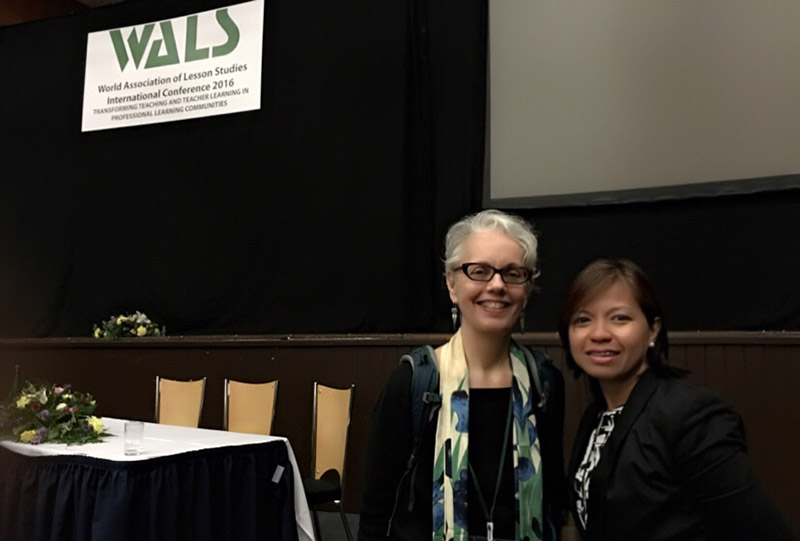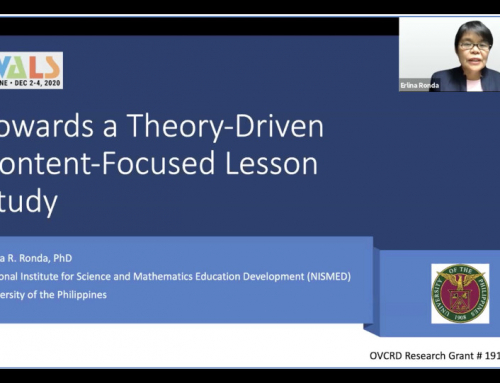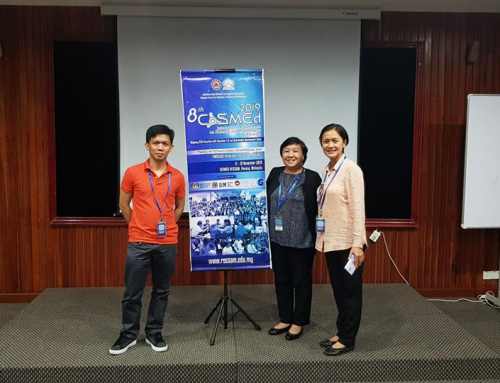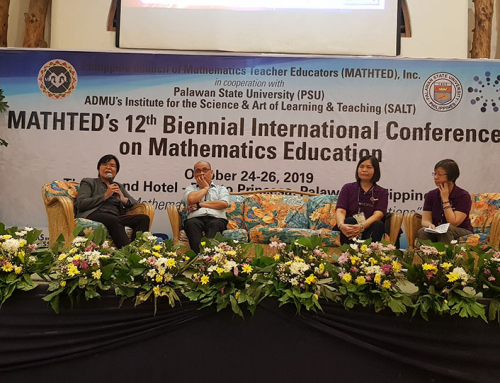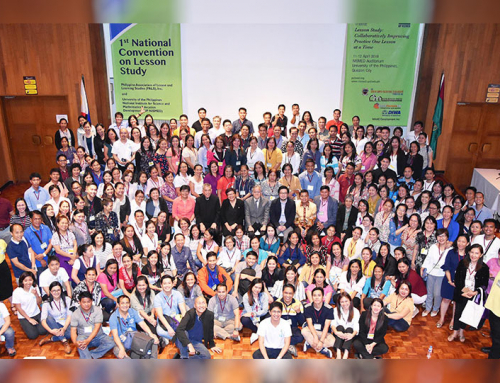Four UP NISMED staff attended and presented papers at the 10th World Association of Lesson Studies (WALS) International Conference held at the University of Exeter in the United Kingdom on 2-6 September 2016. The conference theme was Lesson Study: Transforming Teaching and Teacher Learning in Professional Learning Communities. Lesson Study is a model for professional learning that originated in Japan. It is now practised in many countries with the goal of improving the quality of teaching and learning.
The aim of the conference was “to bring together researchers, school leaders, and teachers from countries around the world to share their knowledge, understanding, and experience of Lesson Study as a form of practice-based research.” The keynote speakers were Professor Kiyomi Akita (Tokyo, Japan), Dr. Pete Dudley (UK), Professor Catherine Lewis (California, USA), and Professor Andy Hargreaves (Boston, USA).
In the conference, Ms. Ivy P. Mejia and Mr. Eligio C. Obille Jr. of the High School Earth and Environmental Science Group, presented a paper titled “Influence of Culture in Adapting Lesson Study: A Philippine Experience.” They described their four-year journey (2012-2015) in conducting Lesson Study with five high school science teachers in the National Capital Region. In their experience, as Lesson Study was introduced into the local setting, different events transpired that could be sorted into three categories: building up of confidence of the teachers; deepening of pedagogical content knowledge (PCK) by experts; and emergence of a non-threatening environment. The events were then analyzed in the light of Sikolohiyang Pilipino, a framework whose core concepts revolve around kapwa (shared identity) and loob (inner self).
Ms. Jacqueline Rose M. Gutierrez of the High School Chemistry Group presented “Sustaining the Culture of Collaboration on Lesson Study: A Practice-based Case Study.” She shared how collegiality played a crucial role in markedly increasing the degree of collaboration from a strenuous initial cycle among the lesson study group members. She described the dynamics of this lesson study group on the aspect of collegiality. Furthermore, she discussed conditions that naturally motivated the group to sustain the practice with confidence and autonomy. The accounts for this case are seen beneficial ultimately in the development of process models in integrating Lesson Study as a sustainable school-based professional development program, as drawn from the Philippine school context.
Ms. Arlene P. Dela Cruz of the Elementary School Science Group presented “Students Answering Their Own Questions: Voices from High School Chemistry Classroom through Lesson Study.” She presented the results of the second and third cycles of one of the two high school chemistry Lesson Study groups under the three-year Lesson Study project in a public school in Metro Manila. The focus of the discussion was on the interview responses of the students after the second cycle of the study. It included comments on teaching and learning science using the voices raised in the classroom – the students’ questions and answers, Lesson Study as a professional development activity, and research opportunity in teaching science.
The World Association of Lesson Studies (WALS) is made up of educational researchers and teaching professionals committed to the improvement of the quality of learning. It provides a platform for collaboration, assistance, and exchange among its members in relation to research and practices on Lesson Studies.
The next WALS International Conference will be held on 24-27 November 2017 at the Nagoya University in Japan. The conference theme will be Bridging Research and Practice through Lesson Study. To those who are interested in participating in the conference, please visit the WALS website for more information

